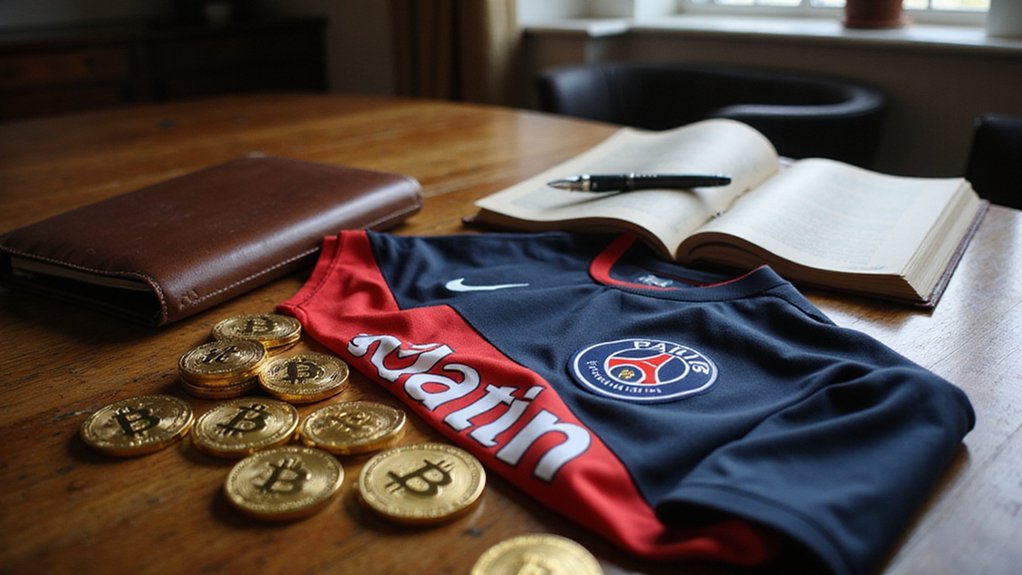Paris Saint-Germain has ventured into uncharted territory by becoming the first major football club to officially declare Bitcoin holdings as part of its treasury strategy—a move that transforms Nasser Al-Khelaifi‘s already controversial project into something resembling a peculiar hybrid between sporting enterprise and cryptocurrency evangelism.
The Parisian club’s announcement at Bitcoin 2025, delivered by PSG Labs head Pär Helgosson with the theatrical timing that only comes from scheduling major revelations before Champions League finals, represents more than mere financial diversification. PSG began accumulating Bitcoin throughout 2024 and 2025, positioning itself as the largest sports organization holding the cryptocurrency in treasury—a distinction that sounds simultaneously impressive and mildly absurd given the relatively nascent corporate adoption landscape.
The market responded with predictable enthusiasm: PSG’s fan token experienced a 120% trading volume spike to $22 million, with prices briefly touching $2.75 before settling at $2.58. This reaction illuminates the increasingly blurred boundaries between traditional sports fandom and speculative digital asset trading, where supporter sentiment now directly correlates with cryptocurrency valuations.
PSG’s justification follows familiar corporate treasury playbook rhetoric—long-term value storage rather than speculative gambling, digital innovation leadership, and appeals to younger demographics. The club leverages its 550 million global fanbase as both marketing asset and venture capital network, with PSG Labs actively backing Bitcoin startups while positioning itself as a bridge between sports entertainment and Web3 infrastructure.
This treasury strategy extends beyond mere asset allocation into thorough digital finance integration. PSG’s innovation hub seeks Bitcoin entrepreneurs, facilitates product launches, and supports fundraising initiatives—essentially functioning as a cryptocurrency incubator disguised as a football club’s research division.
The broader implications suggest accelerating institutional adoption within sports. Following Real Bedford’s pioneering example (albeit at substantially different scales), PSG’s move validates predictions of corporate Bitcoin allocations potentially reaching $330 billion within five years. Whether this represents shrewd financial planning or elaborate marketing theater disguised as treasury management remains unclear, though PSG’s commitment to maintaining Bitcoin holdings suggests genuine conviction rather than publicity stunt—or perhaps both simultaneously, which would be entirely consistent with modern football’s operational philosophy. With Bitcoin’s market cap surpassing $1.7 trillion and the overall cryptocurrency market projected to potentially reach $8 trillion by 2025, PSG’s strategic positioning places the club at the forefront of what could be a massive expansion in digital asset valuations.









